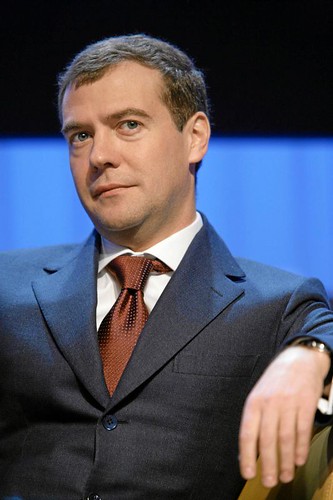A state, in many ways, is like a child. It must be watched over, cared for, and protected. The most striking infantile trait of the state, however, is its desire to be heard. On the world stage, states often wield attention deficit disorders. Its feelings are hurt if its opinion is not taken into account, and it will often, in turn, seek to reproach this insult.
Many of the actions of Vladimir Putin’s Russia should be seen through this lens. After a brief period of relative insignificance, the Kremlin wants to project its opinion and throw its weight around internationally, and the West is becoming frustrated over this fact.
The most recent spat between the Kremlin and the West is over the fallout from the poisoning of former KGB officer and recent Putin-critic Alexander Litvinenko. Litvinenko died last November in London, due to exposure to the radioactive agent polonium 210. His demise sparked accusations of a Kremlin-led conspiracy after the Russian dissident exclaimed on his deathbed that Putin was responsible for his murder—an accusation Moscow has adamantly denied. Russia then refused to extradite Andrei Lugovoi to the UK to be tried for the killing of Litvinenko.
This week, Gordon Brown confronted the Kremlin’s lack of cooperation by expelling four Russian diplomats. Putin responded in kind today, sending four British diplomats back to the UK. And thus, a tit-for-tat diplomatic struggle is under way.
Putin has made the case that extradition is both unconstitutional and unnecessary. Regarding the former, he is right, the Russian constitution forbids the extradition of nationals to be tried abroad. It is also unnecessary, according to the Kremlin, because Lugovoi will be investigated in Russia.
Moreover, the UK is hosting many officials wanted by Moscow, notably Boris Berezovsky, a Russian oligarch accused by the Kremlin of seeking to foment a violent overthrow of the Putin government, and Chechen leader Ahmed Zakayev. London has refused over twenty Russian extradition applications for these suspects and others.
Brown’s rebuttal is that Putin’s government has conveniently failed to get to the bottom of several assassinations of Kremlin foes, including the savage murder of journalist Anna Politkovskaya, and thus cannot be trusted to bring Litvinenko’s killers to justice. The new prime minister must have also felt compelled to react strongly as a result of his brief tenure at 10 Downing. Showing weakness to Russia in his first international row would set a bad precedent and would also likely be frowned upon by his domestic audience.
Whatever one might say about Vladimir Putin, he certainly keeps Russia in the news. This is exactly what he wants, and this affair is no exception. The Russia of the mid-1990s, a weakened state reeling from the collapse of the Soviet Union, no longer exists. Putin has seen to that.
Russia was largely ignored during that turbulent time. But they were heady days for the West, it had "won" the Cold War and NATO and the EU expanded their respective spheres of influence right up to the doorstep of Russia. An introspective and fragile Kremlin could do nothing about it. With the windfalls of high energy prices filling state coffers and fuelling high levels of economic growth within the country, however, Moscow is determined to reassert itself.
Witness the Kremlin’s heavy-handed use of energy supplies in Ukraine and other former Soviet states and insistence that its reservations be considered regarding a range of issues: the invasion of Iraq, the Middle-East Peace Process, Iran’s nuclear program, and the independence of Kosovo. Putin also wishes to reverse the decisions of the past, renegotiating energy deals and international agreements from the 1990s, which “were not, in the Kremlin’s eyes, bargains between equals, but rather exploitation of Russian weakness.”[1]
The Kremlin is even sponsoring the indoctrination of young people with this feeling of being short-changed internationally. Nashi, meaning “our own”, is a pro-Putin youth group, which violentally demonstrated in front of the Estonian embassy after the former Soviet country moved a Soviet WWII memorial. Many of its members are currently in summer camps, learning the ropes and seeking to gain entry into cushy state jobs by vowing allegiance to Putin and the Kremlin.
An ardent nationalism, along with the aforementioned feeling of international self-entitlement, seems to be a common thread running through the thinking of these young people. Yulia Kuliyeva, a Nashi ideologue, declares: “We are defending our sovereignty not from somebody else, but for ourselves, so that people can listen to us, so that we can speak and our opinion will be taken into account.”[2] Again, bitterness abound for the unstable 1990s and a childish desire to be recognized across the globe.
To be sure, Russia is a force on the world stage and seeks to be heard. The 1990s was a blip on the radar screen. Putin is tapping into popular nationalism and reclaiming world power status. Western officials need to gauge Moscow’s opinion on many issues, as it is a permanent member of the UN Security Council and a participant in the important international issues listed above.
However, the Kremlin’s booming economy and energy reserves do not give it the right to do whatever it wants internationally. This requires a strong and clear Western response when Russia oversteps its boundaries. Putin needs to know that if he acts like a child, he will be treated like one.
[1] Stephens, Philip. “With Due Respect to Mr Putin.” The Financial Times. July 17, 2007.
[2] Buckley, Neil. “New Cadre Raises Campfire Song to Russia and Putin.” The Financial Times. July 19, 2007.
Subscribe to:
Post Comments (Atom)





1 comment:
Your analogy of countries acting like children is a good one. I'd never thought of foreign policy like that but it is certainly applicable.
Putin is most certainly childish, stomping his feet whenever anyone doesn't listen to him.
Post a Comment